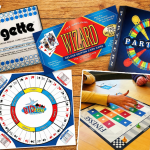In the dynamic world of casinos and gaming, tokenized assets represent more than just virtual currency or property; they are a revolutionary way for players to interact, trade, and stake their claims in the game.
Tokenized Assets – How You Can Own Part of the Casino

Tokenized Assets – How You Can Own Part of the Casino
Imagine owning a piece of your favourite casino game or trading in-game items just as you would stocks on Wall Street. This is now possible with tokenized assets, which are digital counterparts of real-world or in-game assets, secured on a blockchain. Blockchain technology ensures that every transaction is recorded in a manner that is almost impossible to alter or compromise. In the dynamic world of casinos and gaming, tokenized assets represent more than just virtual currency or property; they are a revolutionary way for players to interact, trade, and stake their claims in the game. In Crypto Casinos you’re able to engage directly with casino experience by owning, trading, and profiting from the games you love.
Tokenization in Gaming
Tokenization in gaming means converting game items or assets into digital tokens on a blockchain. In a casino setting, this could include things like game chips, slots, or even game tables. Once tokenized, these assets can be traded, sold, or bought securely and efficiently. Some of you might be more familiar with tokenized assets in non-casino gameplay, for example:
- Decentraland: In Decentraland, a virtual reality platform, users can buy and trade virtual real estate and other assets using the platform’s cryptocurrency, MANA.
- The Sandbox: Another virtual world, The Sandbox, uses blockchain technology to allow users to create, own, and monetize their gaming experiences using the platform’s token, SAND. Players can purchase virtual lands and other assets as NFTs (Non-Fungible Tokens), create games or assets on these lands, and integrate them into the broader metaverse, effectively enabling player-driven economies.
- Axie Infinity: This game is one of the pioneers in combining NFTs with a gaming model. In Axie Infinity, players can buy, sell, breed, and battle creatures called Axies, each represented as an NFT.
- CryptoKitties: As one of the first blockchain games to gain significant attention, CryptoKitties allows players to buy, collect, breed, and sell virtual cats as digital tokens on the Ethereum blockchain.
- Sorare: This is a fantasy football game where players can trade and manage a virtual team with digital player cards.
In these examples of blockchain-based games, players can purchase the game’s specific currency using popular cryptocurrencies such as Bitcoin or Ethereum.
Benefits of Tokenized Assets in Casinos
- Ownership: Players can own a digital token that represents a part of the game, giving them a stake in the game’s ecosystem.
- Trade: Players can exchange these tokens with each other, offering a way to gain different assets within the game.
- Liquidity: With tokenization, assets can be easily traded or sold, enhancing how fluidly players can make transactions.
- Security: Using blockchain ensures that transactions are secure and that ownership of tokens is clear and undisputable.
How Tokenized Assets Work
When an asset is tokenized, its details are recorded on a blockchain in the form of a digital token. Each token represents a specific asset within the casino, like a number of chips or a piece of gaming equipment. Blockchain uses smart contracts, which are self-executing contracts with the terms of the agreement directly written into code. These smart contracts manage the trading, selling, and ownership rights of tokens, ensuring everything runs smoothly and securely.
Examples of Tokenized Assets in Casinos
A specific example of a casino game that offers tokenized assets is found within the realm of NFT-based casino games. These games integrate non-fungible tokens (NFTs), allowing players to own and trade unique and valuable in-game items such as virtual casino chips, character skins, or collectible cards. This approach not only adds a layer of rarity and ownership to the gaming experience but also enables players to potentially monetize their in-game assets outside of the game environment.
For instance, certain online casinos that incorporate blockchain technology might allow players to participate in games where the winnings and game pieces are tokenized. These assets are represented on the blockchain, providing transparent and verifiable ownership, and can be traded or sold in a decentralized manner. This model enhances the traditional online gambling experience by adding the benefits of security, scarcity, and tradability that come with blockchain technology.
Here are five examples of real-world applications of tokenized assets in casinos, designed to appeal to gamers by focusing on practical and engaging uses:
- Slot Machine Shares: Imagine playing on a slot machine where you’re not just hoping to win, but you actually own a part of it. In some blockchain-based casinos, players can buy tokens that represent shares in the profits of a slot machine. This means that as others play, you earn a small part of what they spend, creating a passive income stream while you enjoy your gaming.
- Virtual Casino Real Estate: In virtual reality casinos, players can purchase tokens that represent ownership of various casino properties, like a high-roller lounge or a themed slot area. Owners can customize their spaces to host events or promotions, and charge entry fees or earn a percentage of the winnings, turning a fun gaming experience into a profitable venture.
- Custom Gaming Tournaments: Players can organize their own gaming tournaments using tokenized assets. By using tokens to represent entry fees and prizes, players can create and manage tournaments that are secure and transparent. Winners can instantly receive their prizes through blockchain, ensuring fairness and quick payouts.
- Collectible Gaming Items: Some casinos offer unique, collectible items as tokenized assets. These could be limited-edition digital playing cards or unique game pieces that can be used in games or traded among players. Owning these collectibles not only enhances the gaming experience but also offers an investment as rare items can increase in value over time.
- Loyalty Rewards and Upgrades: Casinos can issue tokenized loyalty rewards that players can collect to earn perks or upgrade their gaming experience. For example, tokens could be used to gain VIP status, access special game rooms, or unlock exclusive games. These tokens can be earned by playing games or traded with other players, adding an extra layer of engagement to the loyalty programs.
These examples highlight how tokenized assets can transform traditional casino games into interactive, profit-generating, and community-driven experiences, making gaming more dynamic and financially rewarding for players.
Case in point: The Rise of NFTs in Poker
One common example is how non-fungible tokens (NFTs) technology is now being applied in the poker industry. Poker platforms have begun to introduce NFT-based playing cards, offering players the opportunity to own exclusive and visually appealing card designs and NFTs are being used to create unique player avatars and personalized online poker environments, allowing individuals to customize their digital presence and gaming spaces (imagine how this will look with a VR headset) . The trend of collecting NFTs within poker has also fostered a vibrant secondary market, where these rare and unique items can be traded and showcased.
How to Identify Casinos that offer Tokenized Assets
if a casino is described as a Bitcoin casino or a crypto casino, it indeed utilizes blockchain technology to handle transactions involving cryptocurrencies like Bitcoin. However, using blockchain technology for financial transactions does not necessarily mean that the casino also offers tokenized assets. Tokenized assets involve additional features such as digital ownership of specific items or parts of the game, which are different from just facilitating transactions with cryptocurrencies. Thus, while a crypto casino uses blockchain for payments, it might not necessarily offer or deal with tokenized assets unless explicitly stated. To find out if a casino offers tokenized assets, you can follow these steps:
- Check the Casino’s Website: Many casinos will advertise their use of blockchain technology and tokenized assets directly on their website. Look for sections on innovation, technology, or digital assets.
- Read Online Reviews: Websites that review online casinos often discuss available features and technologies. Reviews might mention whether a casino uses blockchain technology and offers tokenized assets.
- Contact Customer Support: Reach out to the casino’s customer service via email, phone, or live chat. They can provide direct information about whether they offer tokenized assets and how you can engage with them.
- Browse Online Forums: Gaming and gambling forums and communities (like Reddit or specialized gambling forums) can also be helpful. Members often share their experiences and can provide insights into which casinos are using this technology.
- Look for Partnerships and Announcements: Check for any news releases or partnership announcements between casinos and blockchain or tech companies. Such partnerships often lead to the introduction of blockchain technologies, including tokenized assets.
To find NFT-infused casinos, you can check out platforms that are known for integrating NFTs with their gaming and gambling services. Some of the popular NFT casinos include:
- Rollbit: Known for its VIP rewards and a variety of NFT-based gambling options.
- BC.Game: Offers a substantial welcome bonus and features a variety of games that incorporate NFTs.
- Stake.com: Another platform that provides significant deposit bonuses and utilizes NFTs in its gaming ecosystem.
These casinos utilize NFTs in various ways, from using them as in-game currency and rewards to creating unique games centered around NFTs. This allows players not only to gamble but also to collect and trade digital assets within the platform.
Reference Articles
We hope this has given you some insight into this new tech. For more information, here are some reference articles:
The Future Of Crypto Poker: NFTs, DeFi, And Beyond
For more detailed information and a broader list of options, you might want to visit websites like CasinosCrypto and Crypto News, which provide comprehensive reviews and updates on NFT and Crypto casinos.
And of course, we’ll be writing more articles on the topic as the technology develops. I’m excited to be able to play online bridge with my own custom deck of playing cards!








